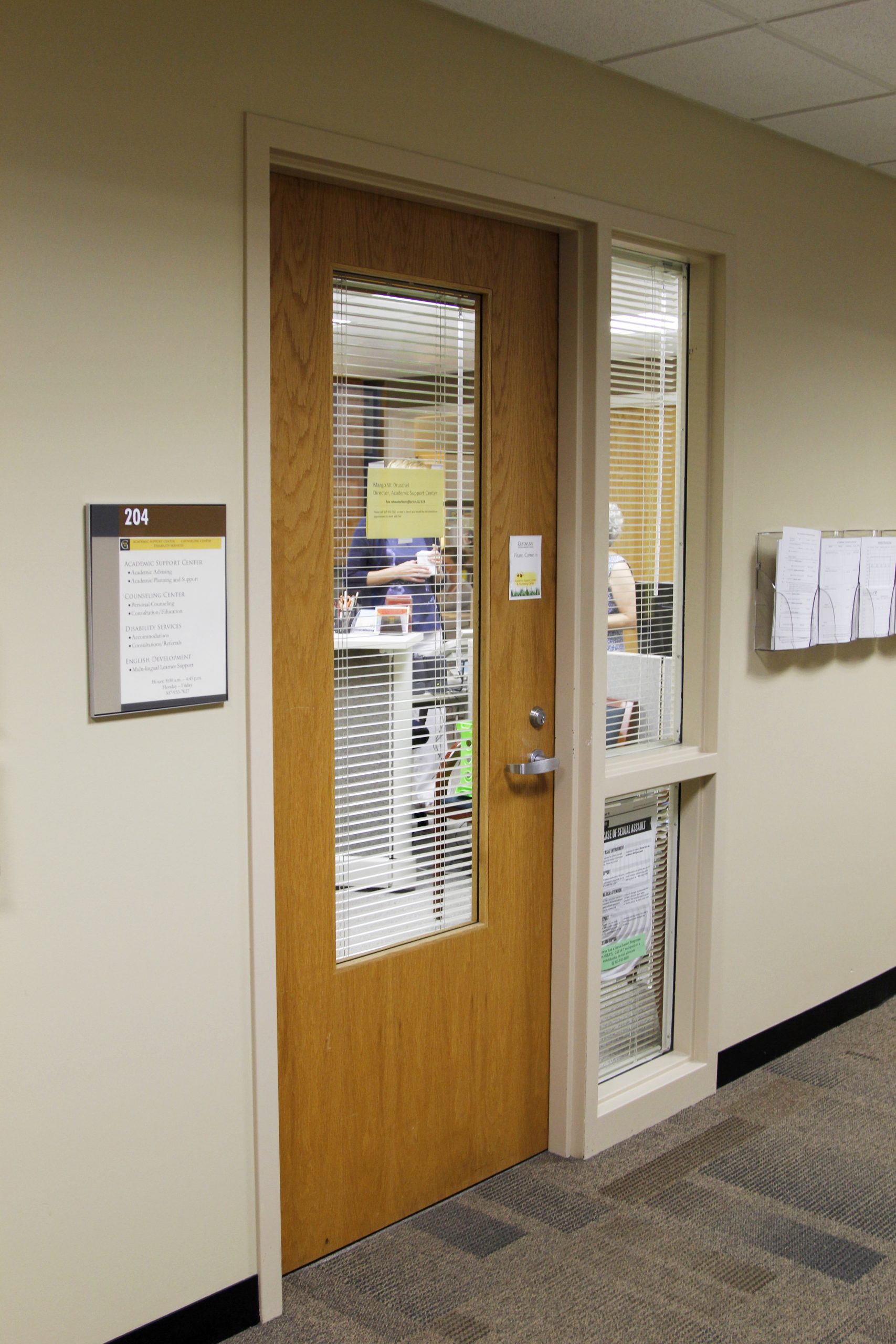This past January, the Counseling Center put on the J-term Sampler.
The J-term Sampler consisted of four 90 minute events that were held throughout the course of January.
The first session was called “So we need to talk…: A guide to effective communication”, which was followed by “Nobody’s perfect: Let’s explore perfectionism!”, and “Just breathe: An hour to practice mindfulness”.
The final session, “Spring forward: Building Resilience” was held on Monday, January 25, from 1:30-3:00 in the Konferensrum or Campus Center. The four meetings this January were designed to cater to a subject matter relevant to college students.
The events were scattered at different times and different days of the week to make it possible for more students to attend at least one of the gatherings.
However, this was not the first time Gustavus put on the J-Term Samplers.
“The Samplers are important because they were held during a time when students may have more time to engage in counseling,” Director of the Counseling Center, Lisa Rinehart said.
Rinehart encouraged students to attend these sessions, no matter where they were in their life:
“Whenever we talk about counseling in general there has always been this preconceived notion that there has to be something really wrong with you to come to counseling and there is kind of a stigma around it. I would say, I may be biased, that this doesn’t seem to be true anymore, people see counseling as a way to better themselves,” Rinehart said.
Each session was led by two people from the Counseling Center. On January 19, Alex Coursol and Allison Dreshfield led “Just breathe: An hour to practice mindfulness.” Coursol is studying Counseling Psychology at the Masters Program of the Graduate School of Professional Psychology at the University of St. Thomas, Minneapolis.
Dreshfield is in Graduate School as well, she is in the Mental Health Counseling Track at Minnesota State University, Mankato. Dreshfield also led a GLBTA support group on campus in January.
One of the purposes of the J-Term Sampler as a whole was to provide extra opportunities for students to engage with therapy and counseling. Each student got twelve individual counseling sessions per academic year free of charge. Not only did the J-Term Samplers not count as part of one’s twelve sessions, but they also gave students a chance to engage in group therapy.
“Group Therapy is really helpful because it puts people in a situation where they understand that other people are going through what they are going through” Coursol explained.
Group Therapy will also be offered in the spring, under the title “Let’s talk about it…” All students are welcome to come to these groups, whether they are attending individual therapy sessions or not.
Both graduate students believe mindfulness is important, especially for people with busy schedules.
“Mindfulness is an awareness of what is happening around you without any judgement. Just being aware of sensations; physical, how you are feeling, what you are thinking, without judging it or saying I shouldn’t think this or I should be doing this or that,” Dreshfield remarked.
Coursol and Dreshfield talked about mindfulness in a number of areas. For example, mindful eating involves being aware of what you are eating, experiencing the textures and the flavors of your food, rather than thinking about what else you have to do that day.
“If you are trying to focus on the sky, and your thoughts are just like clouds passing by, they can be there, but they pass by, and then they are gone. You are back to focusing on the sandwich” Dreshfield said.
Mindfulness helps with depression, anxiety, pain management and boosting one’s immune system. The leaders used techniques of deep breathing and progressive muscle relaxation in the mindfulness session.
Deep breathing involves breathing in slowly through your nose for four seconds, and out with your mouth for six seconds. These slow deep breaths should be done with one’s stomach, rather than one’s chest, which is often done when we are anxious. Progressive muscle relaxation involves tensing different parts of one’s body for a period of time, and then relaxing them.
